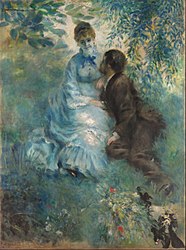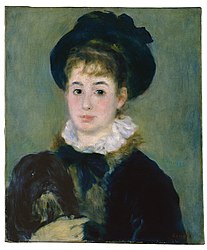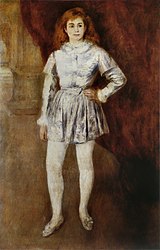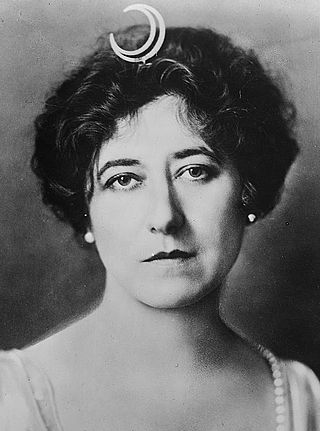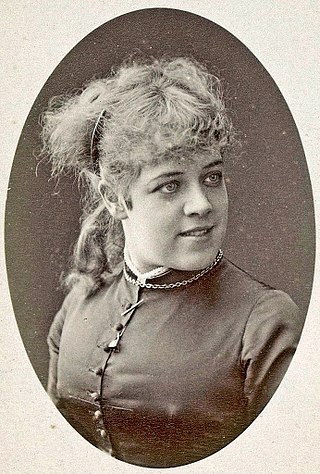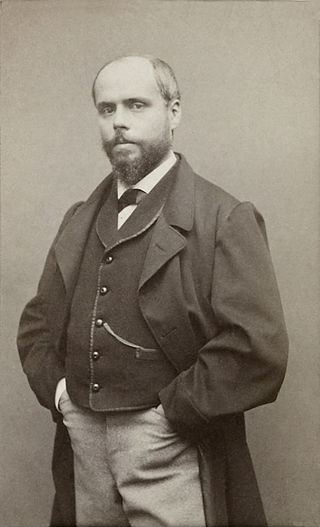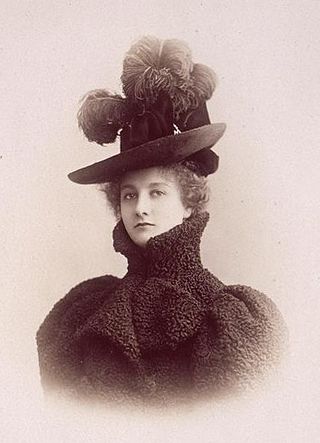Henriette Henriot | |
|---|---|
 Henriette Henriot c.1876 by Pierre-Auguste Renoir | |
| Born | Marie Henriette Alphonsine Grossin 14 November 1857 [1] |
| Died | 17 March 1944 (aged 86) [1] |
| Resting place | Passy Cemetery, 16th arrondissement of Paris [1] 48°51′45″N2°17′07″E / 48.86250°N 2.28528°E |
| Nationality | French |
| Other names | Mademoiselle Henriot, Madame Henriot |
| Education | Conservatoire de musique et de déclamation |
| Occupation(s) | Actress and model |
| Known for | Model in Renoir's painting La Parisienne |
| Children | 1 (Jane Henriot) |
| Parent |
|
Henriette Henriot (born Marie Henriette Alphonsine Grossin; 14 November 1857 – 17 March 1944) [1] was an actress and a favourite model of the French artist Renoir from about 1874–1876. [2] She is known for the model in his painting La Parisienne on display at the National Museum, Cardiff.
Contents
Henriot, the daughter of Aline Grossin, a milliner, [3] started at the Conservatoire de musique et de déclamation in Paris in 1872, where she studied acting. She was still using her birth name of Marie Henriette Alphonsine Grossin, and it wasn't until 1874 when she started to use her stage names of Henriette Henriot, Mademoiselle Henriot, and Madame Henriot when she was appearing in acting roles at the Théâtre de l'Ambigu-Comique and had started modelling for Renoir as a way to earn extra cash. [4] [5] It was at this point that she was performing in minor parts in the Théâtre de l'Odéon, Théâtre Libre and Théâtre de l'Ambigu-Comique. [5] [4]
Colin Bailey formerly of the Frick Collection, said in an exhibition catalogue in 2012: [4]
Between 1874 and 1876 Henriot modelled for five of Renoir's most ambitious full-length pictures and at least seven smaller works. She appears fully and fashionably dressed in La Parisienne , draped and damp in La Source; seated in the shade with a suitor in the Lovers; in Troubadour costume in The Page, and as the protective elder sister in La Promenade . [4]
It is not known whether Renoir ever paid Henriot for modelling, however he did give her two paintings, the last painting he did of her was A Vase of Flowers. [6] Renoir had also become close friends with her during this time, so much so that he also painted her daughter, Jeanne Angèle Grossin (1878 – 1900) who modelled for him in Fillette au chapeau bleu (Little girl in blue hat). Jeanne was killed in a theater fire in 1900, when she was 21. [5]



